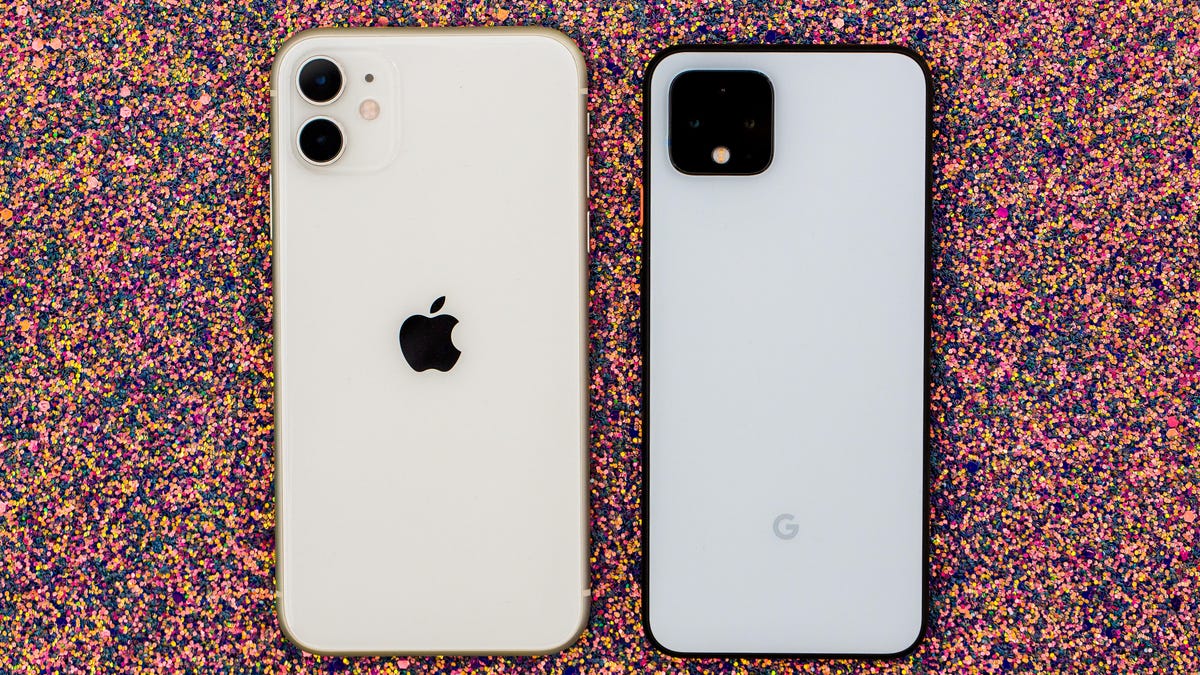Apple, Google to terminate COVID-19 tracking tools once pandemic ends
Contact tracing capabilities using iOS and Android devices are temporary measures, the tech giants say.

Apple's and Google's COVID-19 tracking capabilities will get disabled when the pandemic ends, the companies said.
COVID-19 tracking technology being rolled out by Apple and Google has an expiration date, the tech giants say. The companies say Bluetooth interoperability they're developing for Android and iOS devices won't be used after the public health crisis caused by the respiratory disease passes.
Government officials have turned to technology and surveillance tools to track the spread of COVID-19, the respiratory disease caused by a novel coronavirus. While that may help public health officials keep tabs on the disease, the practice has raised concerns among privacy advocates and lawmakers who worry that measures taken during the emergency will outlast the pandemic.
In March, Sen. Ed Markey, a Democrat from Massachusetts, wrote a letter to the Trump administration asking if the US government would end surveillance systems developed for tracking COVID-19 once the pandemic has ended. That would include the nationwide coronavirus surveillance system pitched by senior White House adviser Jared Kushner and the network of information provided by location data brokers.
When Google and Apple announced their COVID-19 tracking tools Friday, the companies noted that they could disable its functionality once it's no longer needed. In response to questions from CNET, the pair committed on Tuesday to shutting the system down entirely when the pandemic ends.
Coronavirus updates
The pandemic could ease for different communities at different times. Apple said it is working with government authorities on when it would be enabled and disabled by region. Google said public authorities could only use the app to deal with the health crisis.
Still, privacy watchdogs are skeptical, citing surveillance escalations in past crises.
"The lesson of the USA Patriot Act and other 'temporary' post 9/11 surveillance we're still fighting to roll back is that emergency responses rarely are as short-lived as the emergency," said Albert Fox Cahn, executive director of the Surveillance Technology Oversight Project. "The threat from COVID-19 won't simply disappear. We will likely face some degree of risk for years. We simply can't trust tech giants to roll back this invasive and potentially profitable surveillance net simply because they say they will."
Operating system updates that enable the Apple and Google contact tracing tools won't be available until May, and even then, it's up to public health officials to develop apps that will take advantage of the capability. The update will allow iOS and Android devices to ping each other using Bluetooth Low Energy technology.
The idea is to use this function for contact tracing, which has historically been a manual process involving health care workers digging through a person's history to determine who they've been in contact with to map out a disease's spread through a community. An app could help by keeping track of every device it's been near via BLE. If someone on that log tested positive for COVID-19, the app would send a warning out to every device it's been in contact with.
In a press briefing on Wednesday, Apple and Google said that trust and privacy are crucial to the technology because they need as many people as possible to opt in for the tracking capabilities. The companies have taken measures to make sure people's identities aren't associated with their device's Bluetooth codes, like resetting the ID every 14 days. Apple has also told senators that it is committed to privacy with its coronavirus tools.
The capability brings up privacy issues if it's used for functions beyond contact tracing because it essentially keeps a temporary log of devices you've been nearby for at least two weeks, even if the IDs are anonymized. Google said it would only be used by public health officials for managing the COVID-19 pandemic, and that it will be turned off once the health crisis ends.
It's still unclear when that would be. In Wuhan, China, where the outbreak began, a citywide shutdown ended last week after more than 10 weeks. Still, government officials are tracking and surveilling citizens. Singapore initially believed it had the coronavirus outbreak under control, but went into lockdown on April 3 after getting hit with a second wave of infections.
Canadian Prime Minister Justin Trudeau has warned that measures to prevent the spread of the disease would be "the new normal, until a vaccine is developed."
Apple and Google didn't clarify what disabling the tools would mean. For example, neither company addressed whether the tracking could be turned on again in the event of a second wave of infections, or if the tool would be removed from devices entirely.
"Apple and Google are doing the right thing by reportedly committing to shut down any tracking when the COVID-19 crisis is over, but questions remain," said Jennifer Granick, surveillance and cybersecurity counsel for the American Civil Liberties Union. "We need to know what criteria the companies will use to indicate when to turn this tracking off, and whether they will commit to an independent review of their practices to ensure that they are fully consistent with the commitments they are making to the public."

